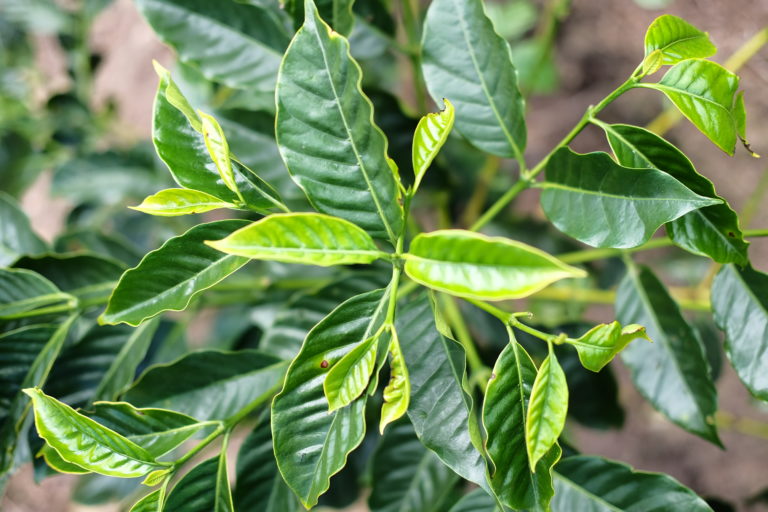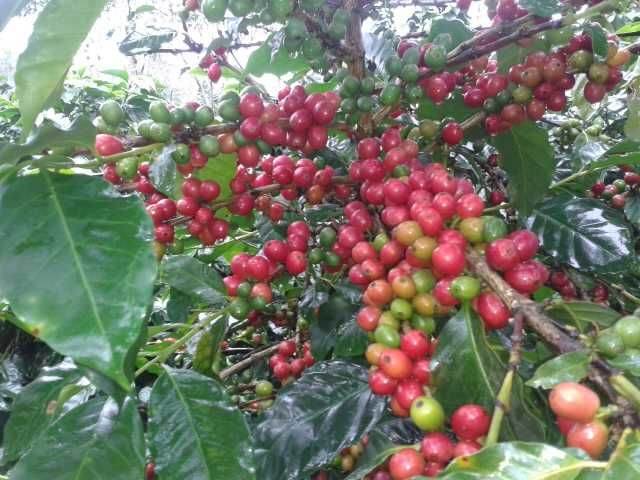Embarrassing certified organic coffee--must there be "certification" to be truly "organic"?
Professional coffee knowledge exchange more coffee bean information please follow the coffee workshop (Wechat official account cafe_style)
In the busy pace, people began to pay attention to health and happiness, and "organic" has gradually become a good choice in modern people's daily life, and organic food has gradually become a trend.
Through this article, Coffee drink will take you to learn the story behind organic coffee.
What is organic coffee?
The word "organic" is often a symbol of the absence of pesticides, and in a broad sense, it is recognized as a planting method of "non-toxic residue". This way can not only maintain the sustainability of the natural ecological environment, but also protect farmers from the harm of pharmaceuticals and provide consumers with a safe source of food, and "organic coffee" was born under this concept.
Organic coffee, also known as "conscience coffee", means that it is cultivated in a natural way instead of relying on chemicals in the process of planting and processing.

Organically grown coffee must be strictly controlled. Apart from the absence of chemicals, everything from environmental soil, water quality, and air to planting, cultivation, and harvesting must meet organic conditions, and organic certification is also one of the elements in order to become organic coffee in a real sense.
Certified coffee is not equal to organic coffee?
"Organic coffee" is organically cultivated coffee, while "certified coffee" is certified by credible units. The certification of coffee is quite diverse, and organic certification is only one of this category, so there is no equal relationship between the two.
If coffee is grown organically, it will become organic coffee, and this organic coffee will become "organic certified" coffee only after it has been certified by a credible unit.
World coffee bean certification mark
There are countless coffee drinkers in the world, and there are as many related companies as stars. How to select what is suitable for you in the multiple coffee bean certification is a subject of knowledge. The editor sorted out five common certifications for you who love coffee!
1. Organic coffee certification
The "natural" choice can protect the ecology while drinking coffee.
The certification of organic coffee is tested by professional institutions one by one, ranging from soil, water quality, coffee trees, roasting process to transportation, etc., and all conditions must meet the standards of natural non-chemistry before they can be certified.
two。 Fair Trade Certification The Fairtrade Marks
"respect" the hard work of producers and the social responsibility certification of international standards.
It ensures that coffee beans come from high-quality coffee farms and enables coffee farmers to get relatively reasonable prices free from economic fluctuations. It is a mutually beneficial certification among coffee farmers, coffee makers and consumers. Poor coffee farmers, in particular, can also benefit from this certification, so that their living environment can be improved and children can go to school.
3. Tropical Rainforest Conservation Certification Rainforest Alliance
The balance between "protecting" the rainforest ecology and considering the economy.
By changing the methods of land use, business behavior, consumer behavior, to protect the ecosystem, to achieve the conservation of biodiversity and the sustainable development of the earth's ecology. Ensure that the goods purchased by consumers are products based on social, economic and ecological considerations. Protect the rainforest as well as the producers of coffee beans, including their living environment, medical facilities and compulsory education for children.
4. Good Coffee Certification UTZ certified good inside
Under "care", it has the guarantee of good coffee with both quality and flavor.
UTZ Certification Organization advocates the concept of sustainable management. When the coffee has passed the environmental, social and economic standards, the UTZ will award this stamp. This certification also establishes a complete traceability system through which consumers can understand where the coffee they drink is produced, the manufacturing process, etc., and ensure that the income is returned to farmers and producing areas. At the same time, they are also concerned about social issues, such as the labor exploitation of coffee farmers, so that coffee has professional and delicious protection.
5. Shade Certification shade grown coffee
"return" to the natural way of growth, respecting the coexistence of the environment and the earth.
The traditional cultivation of coffee is symbiotic with all things in the shade of trees, but under the influence of capitalism, coffee farmers cut down trees for mass production, but coffee trees are exposed to the sun, which is easy to cause insect pests, so they have to use pesticides, causing ecological damage and causing birds to lose their original habitat. Shading certification aims to maintain the balance of nature, implement the spirit of respect for ecology, and let the cultivation of coffee beans return to the purest nature.
Disputes and difficulties of Organic Certification
Organic coffee with organic fertilizer, kitchen waste and animal manure instead of chemical materials is of great benefit to health and ecology. This planting method returns to the ancient artificial harvesting and shading methods, and chooses to live in harmony with nature. Its output is less than that of commercial cultivation, but it has to pay three times more manpower than commercial cultivation, so the production cost is relatively higher.
In poorer producing countries, coffee farmers mostly adopt natural organic cultivation because they cannot afford expensive chemicals, but the organic certification process is time-consuming and expensive, making it difficult for many small farmers to apply for certification. Lost the credibility of organic certification of international institutions, so that their products have a lot of doubts in the market.
And some consumers only care about "certification", feeling that the importance of certification is greater than the quality of the product itself. This is undoubtedly a big shock to farmers who do not have certification but can grow excellent coffee beans, and it also makes certification controversial and is regarded as a marketing tactic.
With regard to the difficulties of organic cultivation, the following three items are mentioned in the book But is it organic?
Certification: the transition to organic farming takes at least three years, as well as fees for review, which is a burden on small farmers and is prone to financial crisis.
Abuse of certification: Abuse of certification results in low trust and income that cannot support organic farming.
Lack of knowledge: organic research and extension is inferior to commercial farming. For farmers who don't know, they can only choose familiar patterns.
What can consumers do?
In the face of certification doubts, in addition to the producer's planting choice, as consumers, how should we choose?
Certification is a reference method that is guaranteed by professional organizations so that the public can believe and judge. In addition, there are many channels that can be judged. Nowadays, excellent coffee beans usually have sufficient information to show that as long as they are purchased, ask more, think more, and look more, such as production areas, processing methods, baking methods, varieties and flavors, etc., they will not fall into misunderstanding, and clearly understand their own needs.
END
Important Notice :
前街咖啡 FrontStreet Coffee has moved to new addredd:
FrontStreet Coffee Address: 315,Donghua East Road,GuangZhou
Tel:020 38364473
- Prev

What is the difference between individual coffee and fine coffee? Why drink boutique coffee?
Professional coffee knowledge exchange more coffee bean information Please follow the coffee workshop (Wechat official account cafe_style) individual coffee first, coffee is mostly made into low-quality instant coffee bags, or mixed with milk and other seasonings into coffee specialties. The popularity of special coffee has changed the supply and demand of the industry. most of the early coffee was named after the export port of origin.
- Next

Ranking of the world's five largest coffee beans Arabica coffee brands list what coffee beans are the best
Professional coffee knowledge exchange more coffee bean information Please pay attention to coffee workshop (Wechat official account cafe_style) Coffee is a popular drink in today's society, is the world's three largest beverage exports, and even plays the role of currency in some famous coffee-growing countries. Coffee has a long history and profound cultural heritage, and it is loved by people from all walks of life. No.
Related
- Beginners will see the "Coffee pull flower" guide!
- What is the difference between ice blog purified milk and ordinary milk coffee?
- Why is the Philippines the largest producer of crops in Liberia?
- For coffee extraction, should the fine powder be retained?
- How does extracted espresso fill pressed powder? How much strength does it take to press the powder?
- How to make jasmine cold extract coffee? Is the jasmine + latte good?
- Will this little toy really make the coffee taste better? How does Lily Drip affect coffee extraction?
- Will the action of slapping the filter cup also affect coffee extraction?
- What's the difference between powder-to-water ratio and powder-to-liquid ratio?
- What is the Ethiopian local species? What does it have to do with Heirloom native species?

